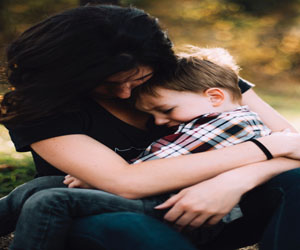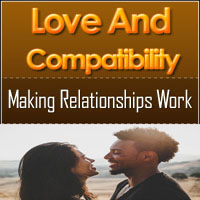
A Digital Age

Embracing A New Chapter In Love

Divorce is a profound life transition, often accompanied by a rollercoaster of emotions, challenges, and a sense of uncertainty. But, for many, it also marks the beginning of a new journey, especially in the realm of love and relationships. Dating after divorce can be both intimidating and exhilarating, and it offers the opportunity for personal growth, healing, and the prospect of finding a fulfilling and loving partnership.
Embracing Change: One of the most important aspects of dating after divorce is the recognition that change is a part of life. The end of a marriage can leave emotional scars, but it also allows for personal growth and transformation. Embrace the idea that life is filled with opportunities, and new beginnings are just around the corner.
Healing And Self-Discovery: Before diving back into the dating pool, it's crucial to give yourself time to heal. Use the post-divorce period for self-reflection and personal growth. Understand what led to the end of your marriage, and what you've learned from the experience. This self-awareness can guide your future dating choices.
Rebuilding Confidence: Divorce can shake your confidence, but it's important to rebuild it. Rediscover your self-worth and remember that you are deserving of love and happiness. Reconnect with your passions, interests, and activities that make you feel good about yourself.
Setting Clear Intentions: Be clear about your dating intentions. Some individuals are looking for casual companionship, while others seek a long-term commitment. Setting and communicating your goals early on can prevent misunderstandings.
Learning From The Past: Your past marriage can be a source of wisdom. Reflect on what went right and what went wrong. Understand your role in the relationship dynamics and the lessons you've gained from the experience. Learning from your past helps you make more informed choices in future relationships.
Open Communication: Effective communication is a cornerstone of successful dating after divorce. Be honest about your past, your feelings, and your expectations. Encourage open dialogue with potential partners, allowing for a deeper connection based on trust and understanding.
Vulnerability: Dating after divorce may require you to be vulnerable once more. It's normal to have reservations about opening up to someone new, but vulnerability is a key component of forming a deep connection. It's about being authentic and allowing someone to see your true self.
Taking It Slow: Rushing into a new relationship immediately after divorce is not advisable. Take your time to get to know a potential partner. Use this period to rediscover your individuality and what you truly want in a relationship.
Seeking Support: It's essential to have a support system in place. Friends, family, or a therapist can offer a safe space to express your feelings, seek advice, and receive encouragement. Sharing your dating experiences with your support network can provide valuable insights.
Finding Joy In The Journey: Dating after divorce is not just about finding a new partner. It's also about enjoying the journey and discovering more about yourself. Embrace the opportunities for growth and personal development that dating brings.
Dating after divorce is a transformative journey filled with the potential for love and personal growth. By embracing change, healing, and self-discovery, you can enter into new relationships with greater wisdom and self-awareness. Remember that every ending is a new beginning, and dating after divorce can lead to a fulfilling and loving chapter in your life.
How Childhood Experiences Shape Adult Relationships
 The Crucial Role Of Childhood Experiences
The Crucial Role Of Childhood Experiences
Childhood is the laboratory of emotional development, where the seeds of future relationships are sown. It's a time when we learn the essential elements of trust, empathy, vulnerability, and attachment. These building blocks are fundamental to forming healthy connections and fostering robust relationships in adulthood.
Positive Childhood Experiences And Healthy Connections
Positive childhood experiences serve as the fertile ground for the growth of healthy connections in adulthood. These early years are pivotal in developing the psychological and emotional attributes that contribute to forming lasting, meaningful relationships.
Trust: A nurturing childhood environment based on trust and reliability lays the groundwork for forming secure emotional connections in adulthood. Trust is the cornerstone of any healthy relationship, allowing individuals to open up and be vulnerable with one another.


 Secure Attachment And Healthy Adult Relationships
Secure Attachment And Healthy Adult Relationships
A secure attachment in childhood typically results in healthy, balanced adult romantic relationships. Individuals who experienced a supportive and nurturing environment during their early years tend to have a strong sense of self-worth and are comfortable with both intimacy and independence in their relationships. These individuals are better equipped to build and maintain emotional connections based on trust, open communication, and mutual support.
Anxious-Preoccupied Attachment: The Quest For Intimacy
Childhood experiences that lead to anxious-preoccupied attachment can significantly affect adult romantic relationships. People with this attachment style often crave intense emotional connections but may struggle with trust and fear abandonment. They might become overly dependent on their partners, seeking constant reassurance and attention, which can lead to challenges in maintaining a healthy, balanced relationship.
Dismissive-Avoidant Attachment: Fear Of Vulnerability
Childhood experiences marked by emotional neglect or inconsistency can result in dismissive-avoidant attachment. In adult romantic relationships, individuals with this attachment style often maintain emotional independence and may avoid vulnerability. They may find it difficult to form deep emotional connections due to their fear of being hurt or rejected.
Fearful-Avoidant (Disorganized) Attachment: A Complex Mix
The fearful-avoidant or disorganized attachment style is characterized by a blend of anxious and dismissive tendencies. These individuals may have complex emotional connections in their adult relationships, making it challenging to navigate the ebb and flow of emotional intimacy and independence.
Healing And Nurturing Positive Emotional Connections
Recognizing the impact of childhood experiences on adult romantic relationships is a vital first step. To heal and nurture these connections, consider the following:
The Key To Healthy Relationships
 Trust: Trust is the cornerstone of a strong foundation. Without trust, a relationship is built on shaky ground. Trust involves confidence in your partner's reliability, integrity, and commitment to the relationship.
Trust: Trust is the cornerstone of a strong foundation. Without trust, a relationship is built on shaky ground. Trust involves confidence in your partner's reliability, integrity, and commitment to the relationship.
Communication: Effective communication is like the cement that binds the bricks of your relationship together. It's crucial for expressing thoughts, feelings, and needs, as well as for resolving conflicts and misunderstandings.
Mutual Respect: Respect for each other's individuality, boundaries, and feelings is essential. It's about valuing your partner as a unique and autonomous individual.
Shared Values: Partners should share core values, such as beliefs, life goals, and moral principles. Having a strong alignment in these areas can help ensure long-term compatibility.
Emotional Support: Being there for your partner emotionally is a fundamental element. Supporting each other through life's ups and downs helps create a deeper connection.
Intimacy And Affection: Physical and emotional intimacy are vital for a strong relationship foundation. Affection, both in terms of physical touch and emotional closeness, fosters a sense of connection.
Shared Experiences: Building memories together and sharing experiences creates a sense of togetherness. These shared moments strengthen the bond between partners.
Now, let's explore how to build and reinforce these components of a strong relationship foundation:
Open And Honest Communication: Encourage open, honest, and non-judgmental communication. This allows partners to share their thoughts and feelings without fear of criticism.
Conflict Resolution: Disagreements are a natural part of any relationship. Learning how to resolve conflicts in a healthy, respectful manner is vital.






A Path To Harmony And Well-Being
 What Is Inner Peace?
What Is Inner Peace?
Inner peace is a deep sense of tranquility, contentment, and harmony that emanates from within. It is a state where one is undisturbed by external stressors, and the mind remains calm and serene, even in the face of life's challenges. Inner peace is not the absence of problems or difficult circumstances; rather, it's the ability to navigate them with composure and equanimity.
The Importance Of Inner Peace
Mental Health: Inner peace is closely linked to mental health. When you have inner peace, you experience reduced stress, anxiety, and depression. Your mind becomes a sanctuary of clarity and focus.
Emotional Well-Being: It allows you to manage your emotions effectively. Instead of being controlled by anger, fear, or frustration, you can respond with patience, compassion, and understanding.
Physical Health: Inner peace has a positive impact on physical health. Reduced stress and anxiety can lower blood pressure, boost the immune system, and promote better sleep.
Improved Relationships: Peaceful individuals tend to have healthier, more fulfilling relationships. They can communicate more openly, resolve conflicts more constructively, and offer support and empathy to others.
Cultivating Inner Peace
Mindfulness And Meditation: Regular mindfulness meditation can help you develop inner peace. It involves focusing on the present moment and observing your thoughts and emotions without judgment.
Self-Acceptance: Embrace your imperfections and accept yourself for who you are. Self-criticism and unrealistic expectations can create inner turmoil.
Nurturing Your Inner Landscape
 The Significance Of Emotional Growth
The Significance Of Emotional Growth
Improved Mental Health: Emotional growth contributes to better mental health by promoting self-awareness and emotional regulation. It can lead to reduced stress, anxiety, and depression.
Enhanced Relationships: Emotionally growth individuals are better equipped to navigate relationships. They can communicate more effectively, empathize with others, and understand the emotions and perspectives of those around them.
Personal Development: Emotional growth challenges individuals to become their best selves by working through emotional difficulties, gaining insight into their reactions, and fostering personal growth.
Increased Resilience: Emotional growth enhances resilience by teaching individuals how to adapt to life's challenges, bounce back from setbacks, and face adversity with greater strength.
Cultivating Emotional Growth
Self-Reflection: Begin by exploring your emotional landscape. Reflect on your past experiences, how they've shaped you, and the patterns in your emotional responses.